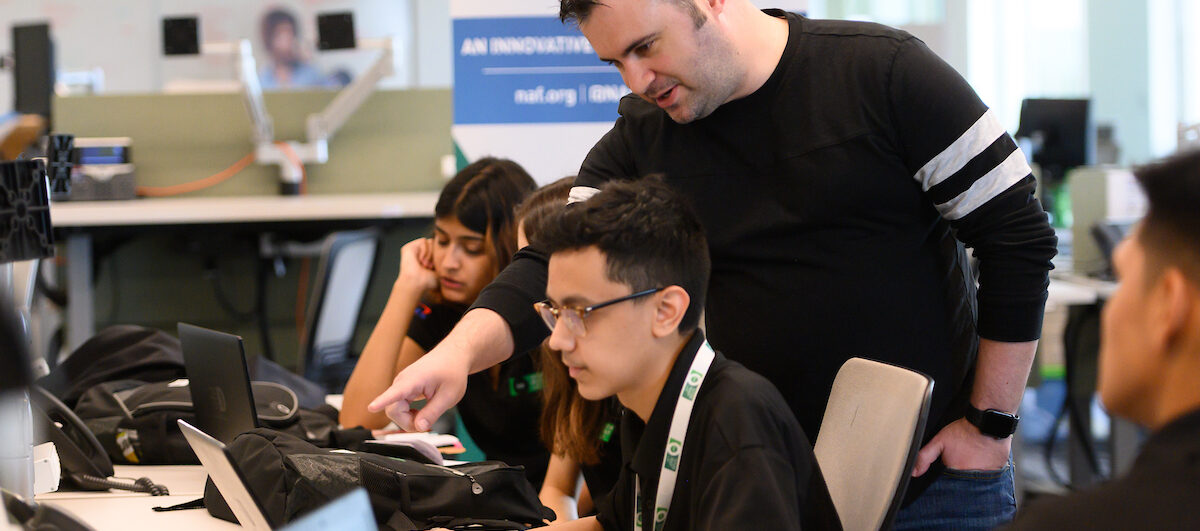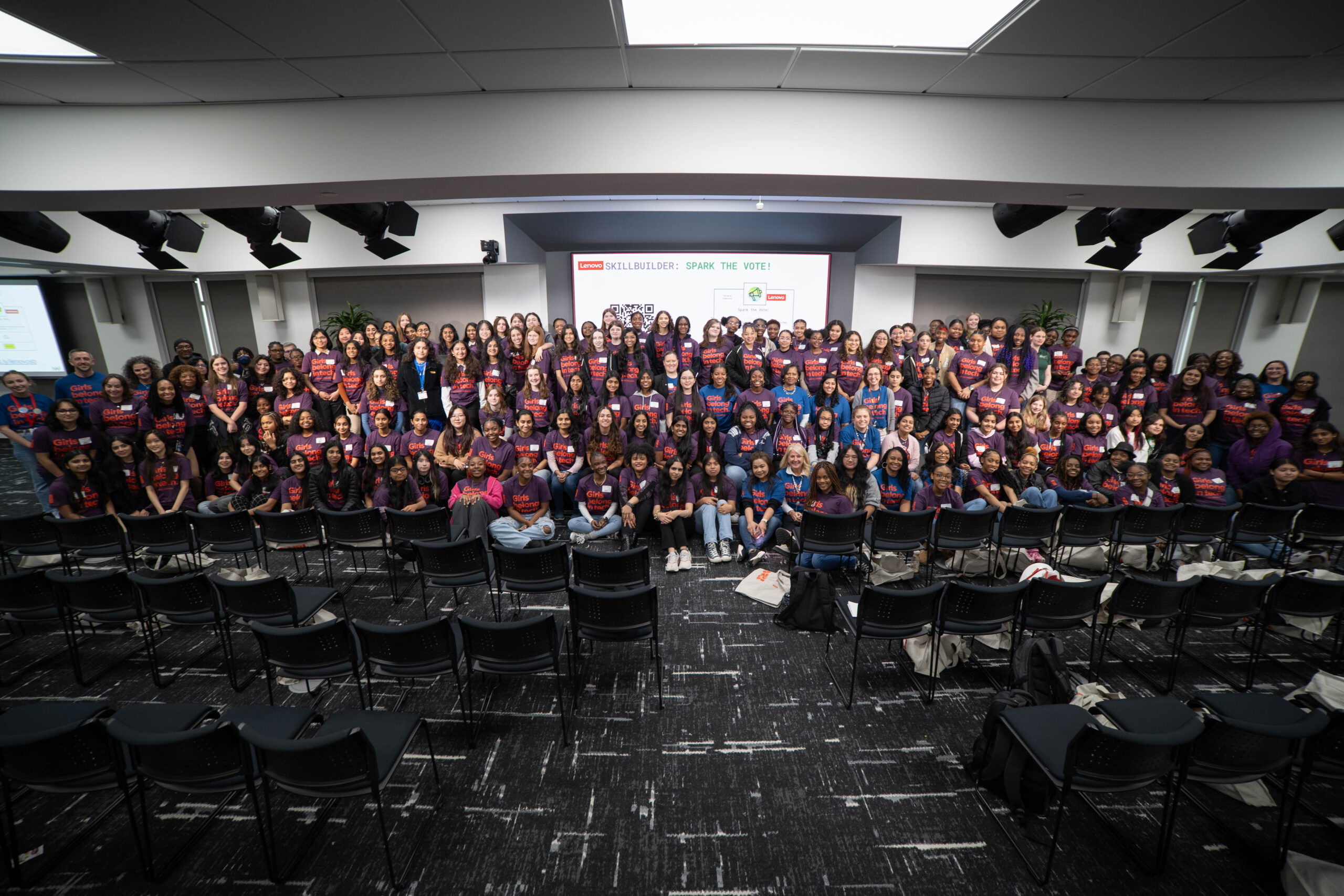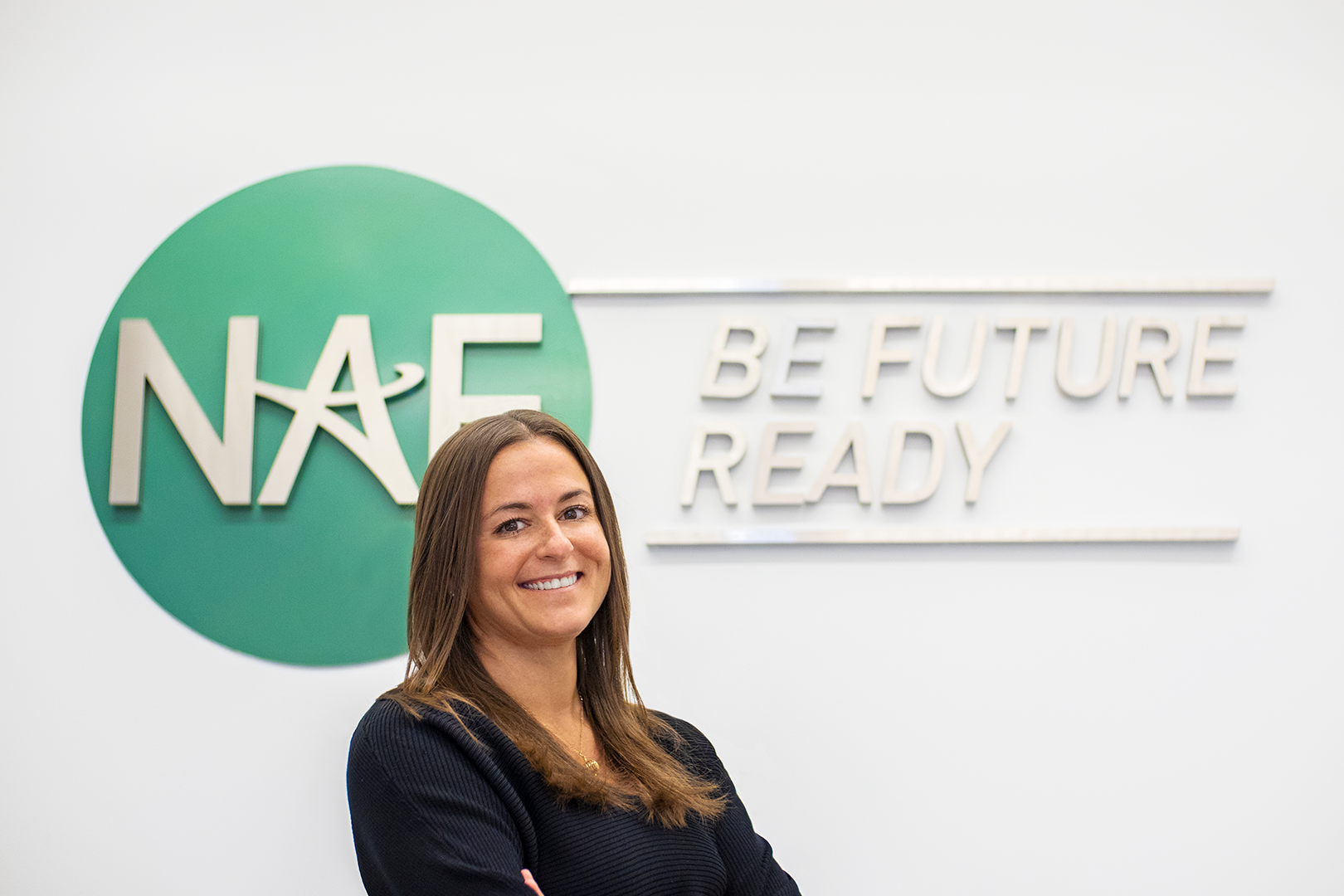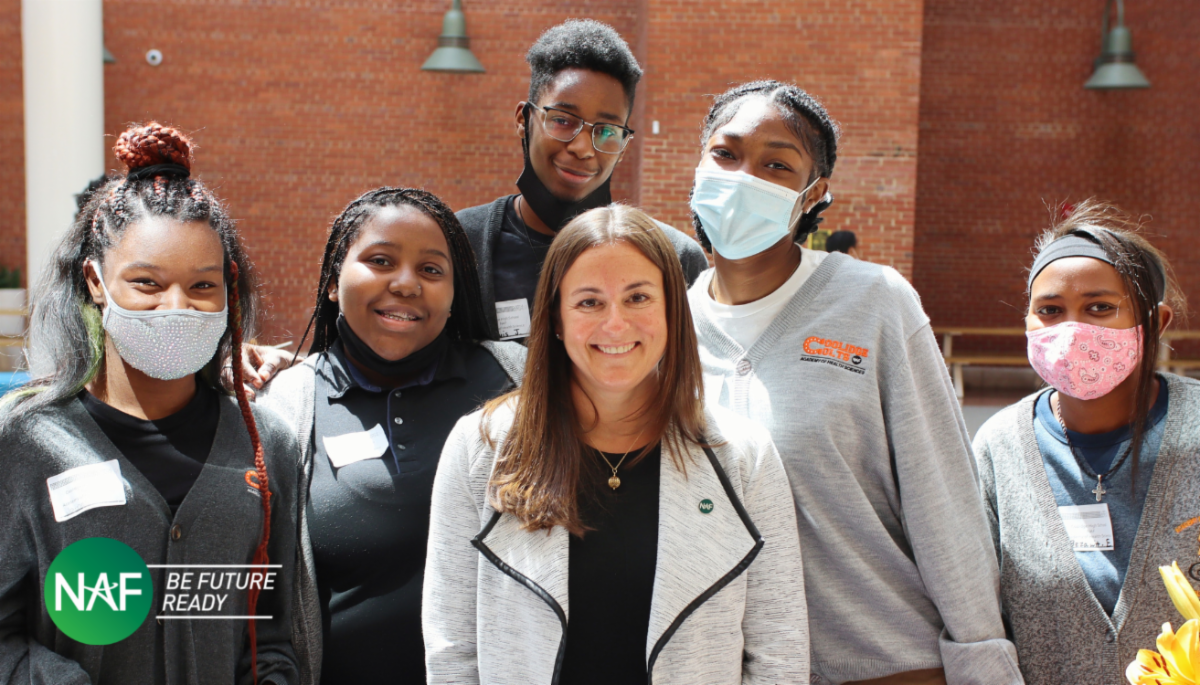NAF Town Hall Recap: “Building Skills for the Future of Tech”
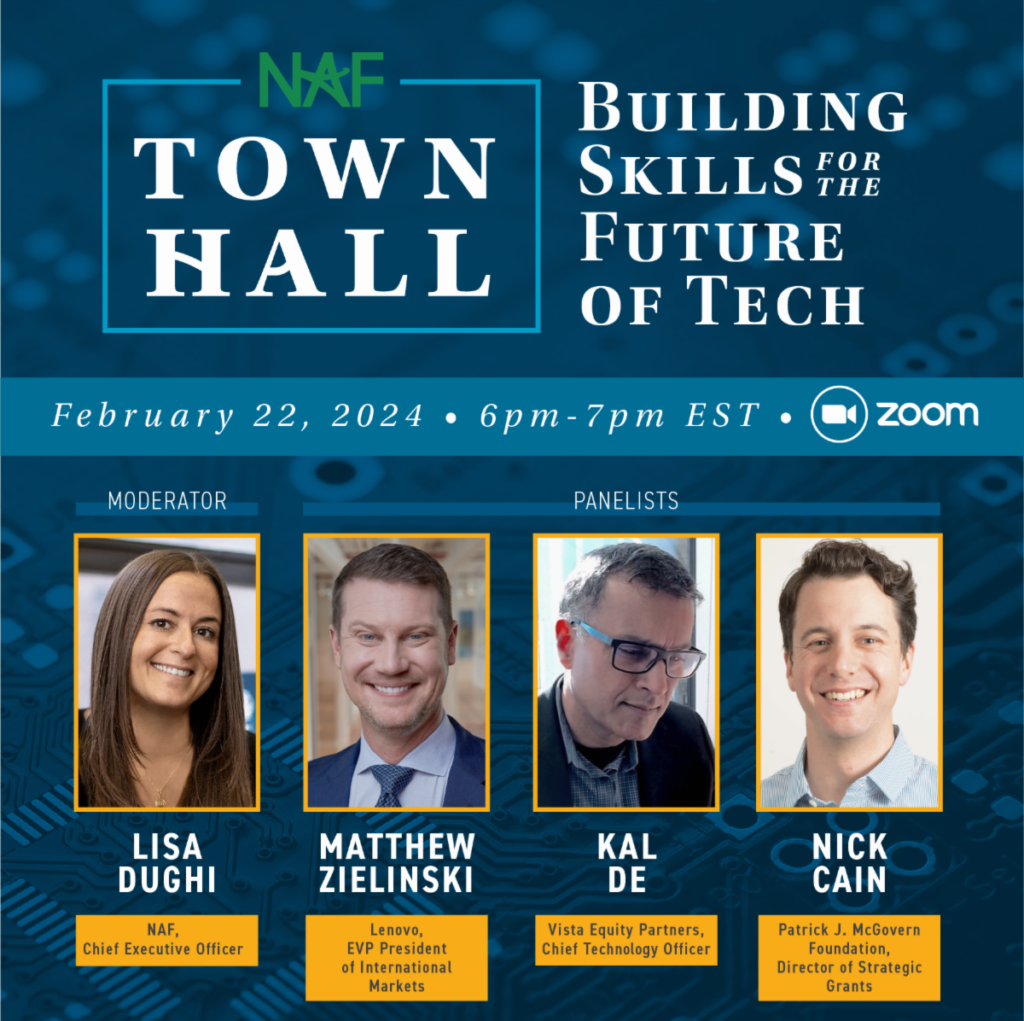
Late last month, NAF was proud to host its first Town Hall of 2024, focused on a significant and extremely relevant topic that will impact every career path and industry: “Building Skills for the Future of Tech.”
The future is now, and the focus is technology. According to the Future of Jobs 2023 report by the World Economic Forum, between now and 2027, businesses predict that 44% of workers’ core skills will be disrupted because technology is moving faster than companies can design and scale up their training programs.
Lisa Dughi, Chief Executive Officer of NAF, acted as the moderator for an esteemed panel that took a deeper dive into this critical area. The discussion featured Matthew Zielinski, Lenovo, EVP President of International Markets, NAF Board of Directors; Kal De, Vista Equity Partners, Chief Technology Officer; and Nick Cain, Patrick J. McGovern Foundation, Director of Strategic Grants.
Lisa opened up the conversation by asking each panelist what role they believed technology could play in ensuring equitable educational opportunities, especially for students in under-invested in communities.
Matthew shared, “I like to think about technology as the great equalizer. It really does neutralize the playing field, assuming you have access to it, and that’s our job at Lenovo, to get students access. It is so critical to adapt to the learning style of the student and technology helps to tailor that, and that’s vital in the world of STEM.”
“The best way to invest in the future workforce is education – particularly STEM – especially for an economy that is almost entirely digitally driven. This is core to our values as a firm and to our Founder, Chairman, and CEO, Robert F. Smith, also a NAF Board member. He has a concept that we embrace, that is called Cradle to Career, that espouses that education is a continuum and a lifelong endeavor. Quite simply, it’s critical to start early and be proactive,” Kal expressed.
Nick echoed, “At the Patrick J. McGovern Foundation, we also think about some bigger picture questions about the very nature of the technology itself and people’s understanding and ability to interact with it. We talk a lot about having our work direct and enable a human-centered digital transformation and in the context of education, there are a couple of ways that plays out. It empowers students and communities to ask questions about the technology and if their needs are being considered, in how they will use it.”
The panel continued on to describe what their organization is doing to support the next generation of leaders and what they expect the return on investment to be.
Nick explained, “The return on investment that we seek is this human-centered digital transformation and I think there’s a number of ways to enable that. It’s important to directly train young people to improve their tech skills, expose them to careers, and think about holistic ways to build a tech onramp. Many roles are changing quite quickly, given the context of how technology is changing. It’s about focusing both on the individual training level and starting to think systemically as well.”
“It’s very simple – we’re trying to create the talent pool of the future. You can’t build good technology unless you have a diverse set of eyes looking at it. You need to create through the eyes of all. We invest in NAF to develop that talent pool and really enjoy spending our time and resources to ensure that we are leaning in early,” Matthew summarized.
Kal added, “For Vista, we support a number of partner organizations, including NAF, to teach students core technical skills and have them start early. We think of this from an investor’s standpoint as well and while early education is foundational, we also try to create opportunities that provide a path into the real professional world – such as internships, mentoring, and other supports.”
A major truth that emerged is that it’s essential to bridge the digital divide and ensure that education, industry, and nonprofit leaders unite to build a future diverse and inclusive tech talent pipeline.
Nick continued, “There’s no better time to support and invest in learners early on. We don’t know perfectly how the careers they want to pursue may look like in the future but having a technology fluency and the agency to ask questions, will serve them incredibly well. We need more voices in the room who will ask the important questions and determine if we are putting human needs at the center of what we design.”
“Technology is one big ecosystem. It really is about collaborating, first and foremost. To do true outreach, get everybody united to the cause. Exposure and networking are key in making sure that the web is cast as broadly as we can,” Matthew offered.
Kal reflected, “AI is not new. We are all now in the midst of recognizing and figuring out the potential that Generative AI brings to the table — as perhaps the most significant breakthrough — and promises to bring human productivity to heights we haven’t seen before. Understanding how it works for the incoming generation and developing the skills is going to be incredibly relevant.”
For additional highlights, watch the full recording to hear more of what the panel had to say and how students can stay updated on the trends, remain connected, and have a clear view of what the future looks like.



